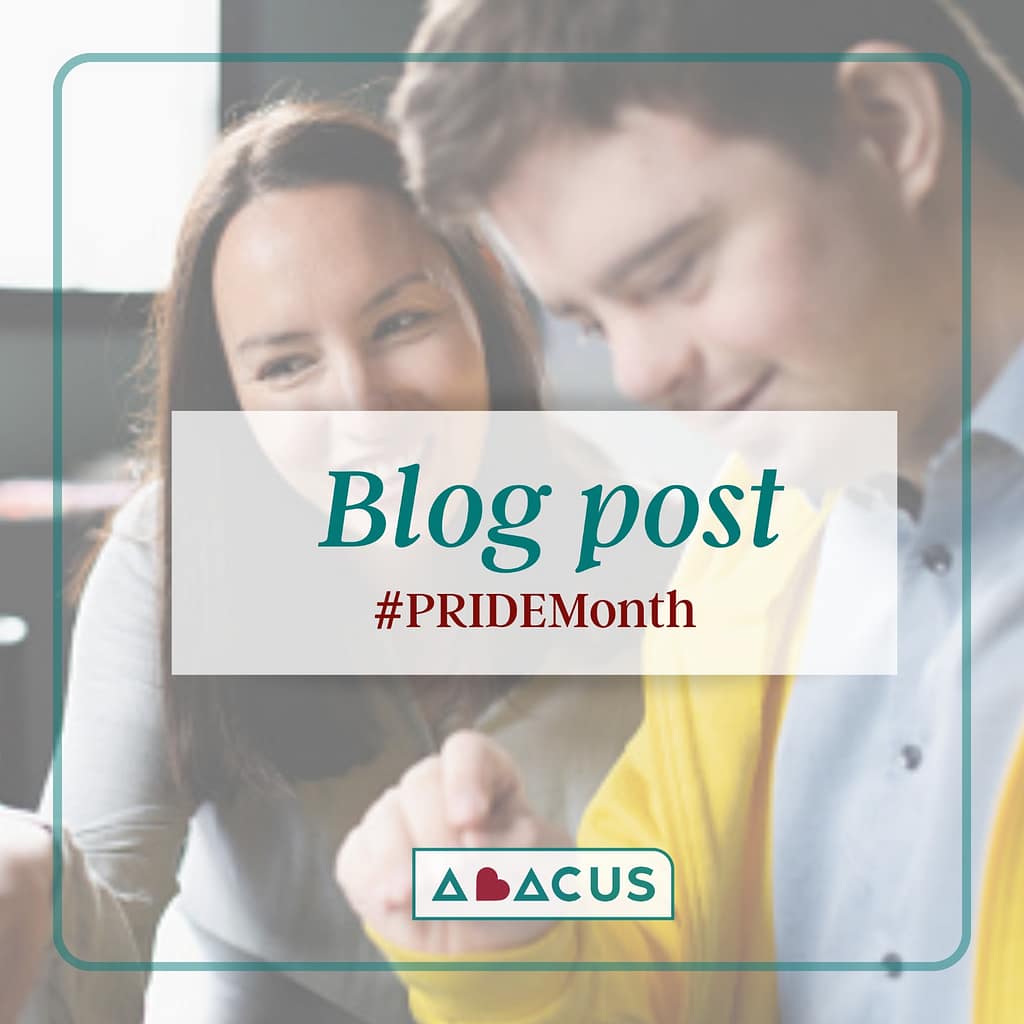*LGBTQI+ stands for Lesbian, Gay, Bisexual, Transgender, Queer and Intersex. The ‘+’ is a symbol used to include those with other identifying terms.
As Pride month draws to a close, we delve into the issues surrounding being a person with a learning disability who identifies as LGBTQI+.
What is Pride month?
In the UK, the month of June is celebrated by many as ‘Pride Month’. During June, many individuals, organisations and charities advocate for LGBTQI+ acceptance and equality, promote the education of LGBTQI+ history and issues, and celebrate sexuality and gender-based diversity.
Discrimination against LGBTQI+ identifying individuals is, sadly, not uncommon. People who are LGBTQI+ and have a learning disability can face unique and additional challenges.
What can the challenges look like?
- People with Learning Disabilities who are LGBTQI+ find themselves in more than one minority group which commonly experiences discrimination. This can contribute to an individual’s reluctance or fearfulness about discussing their feelings.
- Many people with learning disabilities have not been taught – or included in conversations – about the sexual and gender-based issues/feelings they experience. Today, children in mainstream and special schools are expected to receive appropriate sex and relationship education. But the reality is that many people with learning disabilities who are adults now, did not receive that kind of learning when they were at school.
- People with learning disabilities can be inaccurately perceived or treated as a-sexual. Sometimes people with learning disabilities are not included in conversations about gender or sexuality because people assume that they do not experience certain issues or feelings. Not only is this a false assumption, this attitude can also contribute to confusion, isolation, loneliness and feelings of being misunderstood.
- A learning-disabled person’s communication skills, cognitive abilities or capacity for consent might make conversations about gender and sexuality difficult or awkward for those in their support network. Accessible gender and sexuality education and advice is drastically under-resourced. It is not surprising that those who might want to help their friend, loved-one or service user navigate these issues often feel ill-equipped to do so.
What can be done?
- Support staff and carers can encourage appropriate communication about gender, sexuality and relationships and support healthy expression of these things. The Care Quality Commission (the independent regulator of health and social care in England) has recently updated its guidance to outline its expectations for care providers when it comes to relationships and sexuality. It covers many issues, including supporting people to establish and maintain healthy relationships, while also helping individuals to understand risks. The guidance also refers to the importance of care providers fostering an environment which is non-discriminatory towards those who identify as LGBTQI+. You can read the publication for yourself to understand what is expected of care providers, including Abacus. (Click for easy read version)
- We can educate ourselves and learn more about what it is like to be LGBTQI+ and have a learning disability. Unfortunately, information is scarce when it comes to exploring this topic. However, there are some helpful resources which have informed this blog post, in which people with learning disabilities speak about their experiences: one is a BBC Sounds podcast, another is a video commissioned by the Social Care Institute for Excellence.
- People with and without learning disabilities can engage in appropriate communication together. If you are somebody with a learning disability who identifies as LGBTQI+, or is questioning their gender or sexuality, it is a good idea to speak to somebody you trust about the support you are looking for. If you’re not sure what it is you want, you could begin by saying you’d like to spend more time thinking about this together. If you support someone with a learning disability, it is important to communicate patiently, compassionately and in a way which is appropriate to their additional needs. You may find it useful to explore this topic using specially designed publications: LGTBQ+ Easy Read guide, Jan’s story (lesbian photo-story), Phil’s story (gay photo-story)
Everybody deserves to be treated with respect and compassion when it comes to expressing and discussing their gender, sexuality and relationships. This is equally true for people with learning disabilities. We hope this blog post contributes helpfully to the much-needed discourse about this topic.
This blog post has been influenced by a number of additional sources which have received in-text citation via hyperlinks.
Additional resources include:
CHANGE – ‘Out spoken’ project | https://www.changepeople.org/our-work/outspoken
BBC – Pride month: ‘Being disabled and gay – I’ve faced barriers’ (article) | https://www.bbc.co.uk/news/uk-wales-61720307
STONEWALL – Discrimination Against LGBT people (easy read) | https://www.stonewall.org.uk/system/files/discrimination_easy_read_lo_res_v3.pdf
NORAH FRY RESEARCH CENTRE – Secret Loves, Hidden Loves? (easy read research summary) | https://research-information.bris.ac.uk/ws/portalfiles/portal/190244315/Easy_to_Read_Summary_English_.pdf
MENCAP – Sexuality – Research and Statistics (webpage)| https://www.mencap.org.uk/learning-disability-explained/research-and-statistics/sexuality-research-and-statistics
This post was written by Amy Bianchi


excellent post well done thank you